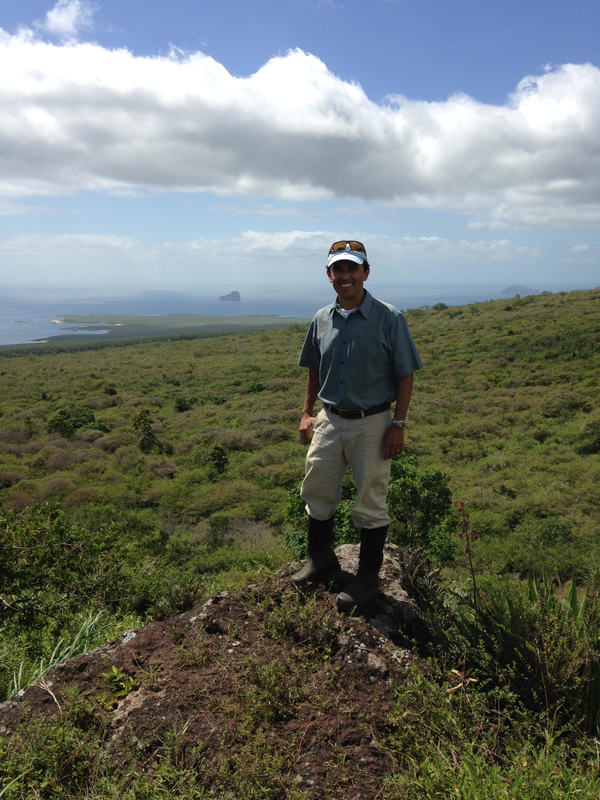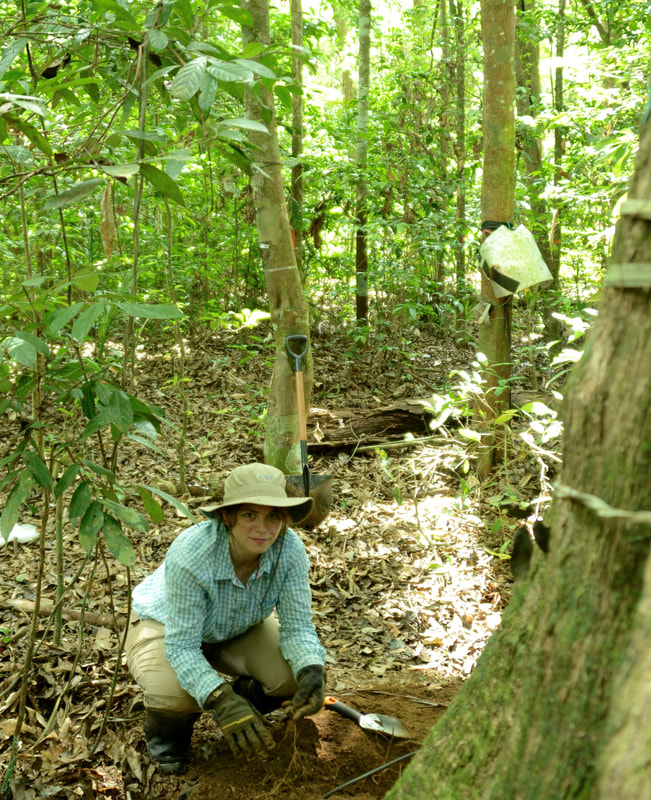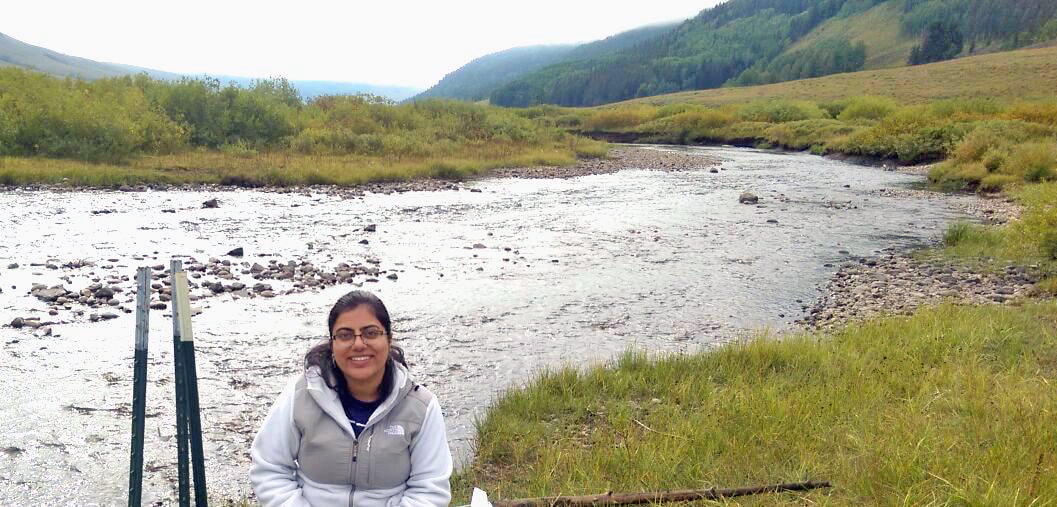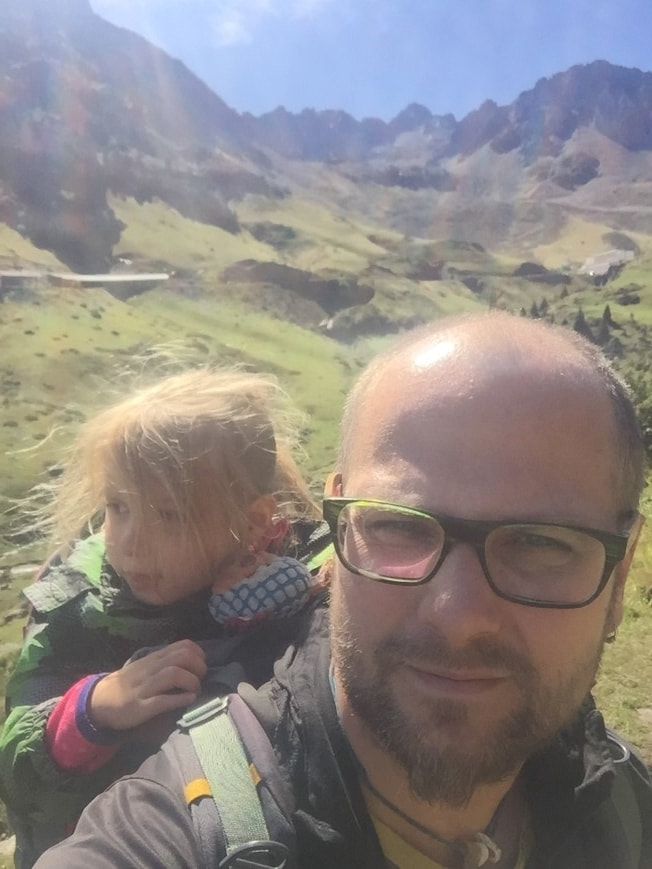Ecohydrology is the intersection of all the fields that I have always been intrigued by: geology, hydrology, ecology, climate science, and even humans – all interacting over time.
What are your undergraduate and graduate degrees in?
I have a B.S. in geology from the National University of Colombia, an M.S. in geology and geophysics from the University of Minnesota, and a Ph.D. in ecology and environmental sciences from Montana State University.
How did you arrive at working in/thinking about ecohydrology?
I never spent much time thinking about living organisms during my undergrad. In fact, most of my time as an undergrad I spent looking at metamorphic rocks under a microscope. But during my master’s I worked on a hydrogeology project that had a component on surface water – groundwater exchange, and the surface water body involved was a fairly big wetland that did all sorts of great things to the chemistry of the waters I was collecting. Thus, I became very interested in the carbon cycle and decided that if I ever did a Ph.D., the project would have to couple the water and the carbon cycles. That’s how I found - in an EOS ad! - an announcement for a Ph.D. position in Montana, working at the intersection of hydrology and ecology in subalpine forests. I was so fascinated by the ‘eco’ aspect of the project that after my Ph.D., I decided to do a post-doc in an ecology lab in the Department of Ecology and Evolutionary Biology at the University of Colorado in Boulder.
What do you see as an important emerging area of ecohydrology?
There are so many! Ecohydrology conveys interdisciplinary knowledge that is required to address current and future environmental challenges in response to global change. Water is fundamental for biological processes, ecosystem function, and for the coupling of processes on or below the land surface and in the atmosphere. I think ecohydrologists are in a strong position to tackle many of the challenges that humanity faces today, including sustainability of ecosystem services and feeding the world at 9 million.
Do you have a favorite ecohydrology paper? Describe/explain.
Again, there are so many! But I would put Bruijnzeel and Veneklaas (1998) among some of my favorite papers. It was published in Ecology, and it describes productivity of tropical montane cloud forests, involving complex terrain, soil moisture, fog, limited solar radiation (due to high cloudiness), low nutrients, and poor soil conditions. Despite all of this, these ecosystems have evolved to become some of the most biodiverse on Earth and to date they remain very much understudied.
Bruijnzeel LA, Veneklaas EJ (1998) Climatic conditions and tropical, montane forest productivity: the fog has not lifted yet. Ecology 79:3–9.
What do you do for fun (apart from ecohydrology)?
I have a five-year-old and a one-year-old that keep me pretty busy, so any time outside work revolves around my wife and daughters. We spend a lot of time outside, hiking in the woods, riding bicycles, or doing family stuff. Our weekends are usually booked with activities from birthday parties to soccer practice to trips to the museum. I enjoy distance running, traveling, and cooking. I also try to combine exercise with family time. I once ran a half marathon pushing my then 30-lb daughter in her stroller – it was hard and fun!




 RSS Feed
RSS Feed